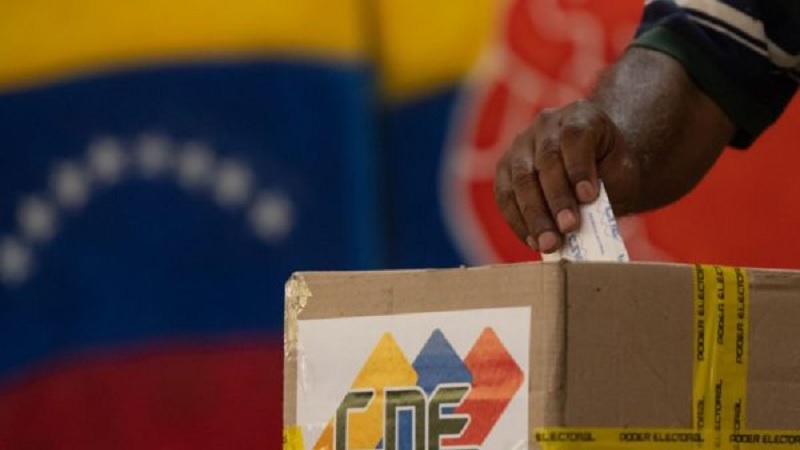Nicolás Maduro aims for third term in office despite lagging in polls

On July 28, the presidential elections in Venezuela will take place for the 2025-2031 term. Ten candidates are running, but the primary contest is between the current president, Nicolás Maduro of the Gran Polo Patriótico coalition, seeking his third consecutive term, and Edmundo González Urrutia, the main opposition candidate from the Plataforma Unitaria Democrática (PUD in Spanish).
The continuity of Chavismo is at stake in these elections, unfolding within a highly polarized political context marked by the disqualification of opposition candidates, falsification of electoral polls for political propaganda, high inflation, and a lack of guarantees for transparent elections. These factors contribute to the difficulty in predicting Sunday’s outcome, although to the go by the polls at least the opposition appears well placed.
Opportunity for change? What the polls say
Uncertainty, lack of transparency, and the characteristic unreliability of the current historical moment in Venezuela have significantly impacted voter intention surveys. Consequently, there is a wide range of potential outcomes for Sunday, depending on the pollster considered. Some of the most recent and rigorous polls indicate that Edmundo González Urrutia has a lead of over 25 percentage points over Nicolás Maduro. However, other local sources, presented by the Chavismo faction, show diametrically opposite results. This underscores a constant for Sunday: the challenges of obtaining accurate and consistent data in the Venezuelan political context, where the credibility and transparency of information are frequently called into question.

Projections
These elections are a pivotal moment for the immediate future of the country. Regardless of who wins, both the ruling party and the opposition face the daunting task of implementing effective measures after years of severe economic crisis characterized by hyperinflation, international sanctions, and a significant exodus of citizens seeking better living conditions. Furthermore, the international community is closely monitoring the situation, anticipating that the outcome could either trigger significant reforms or heighten existing tensions.
The Legislative Branch that will operate alongside the next president will be the current composition of the National Assembly, at least until 2026 (the year when the entire chamber is due for renewal). This means that the future president will have to work with a parliament dominated by Maduro’s supporters. Of the 277 legislators, 222 are aligned with Maduro’s party, 34 are usual allies of the ruling party, and 21 seats belong to the opposition. Practically speaking, if González Urrutia becomes the next president, he will face a predominantly opposition-controlled assembly likely inclined to block his agenda.
Although there is a formal agreement for all candidates to acknowledge the election results, there are lingering doubts about whether Maduro would accept a possible defeat and allow a peaceful transition of power. This skepticism stems from the government’s history of authoritarian practices and its influence over key institutions such as the Judiciary, the armed forces, and the Electoral Council.
